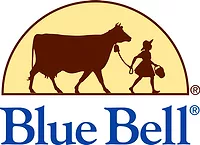Sysco Fined $19.4 Million for Storing Perishables in Unrefrigerated Sheds
Editor's Note: The following news story aired last night on NBC in the San Francisco metropolitan area. Among those interviewed in the video was Jerry Roberts, owner and president of Global Quality & Food Safety Consultants and co-author (with Larry Keener) of Food Safety Magazine's August/September 2013 cover story, "The Squeaky Wheel: Is Transportation the Watershed for Food Safety and Food Defense?"
Source: NBCBayArea.com
Sysco Corporation, the world’s largest food distributor, has agreed to pay $19.4 million in penalties and restitution after an NBC Bay Area investigation uncovered the company’s secret food sheds regulators called illegal and unsafe.
The historic penalty is one of the largest consumer settlements in California. Inspectors from the California Department of Public Health (CDPH) launched their investigation into Sysco Corporation last July, after whistleblowers came forward to NBC Bay Area to expose the company’s longstanding practice of storing meat, produce, dairy, and other fresh food in dirty, unrefrigerated, outdoor storage units.
CDPH inspectors combed though company records from July 2009 to August 2013 and found:
- 25 unregistered drop sites across Sysco’s seven distribution centers spanning from Sacramento to San Diego
- 23,287 cumulative days food was illegally stored
- 156,740 food items stored in drop sites without temperature controls
- 405,859 food items stored in illegal drop sites
Last summer, NBC Bay Area witnessed this potentially hazardous process first hand, as the Investigative Unit's surveillance cameras captured raw food being transported from Sysco’s Fremont distribution center to unrefrigerated storage lockers in Concord and San Jose, where it was placed on the floor next to insects and rat traps. The food sat for hours in temperatures as high as 80 degrees before it was picked up by sales associates and delivered to restaurants and hotels.
Public health officials also tracked these potentially hazardous items being delivered to schools and hospitals.
In a written statement, the Santa Clara District Attorney’s office wrote: “The July 2013 NBC report triggered a state-wide investigation by the California Department of Public Health and, ultimately, an enforcement proceeding brought by the California Food Drug and Medical Device Task Force.”
Following their investigation (pdf) Santa Cruz and Santa Clara counties ultimately filed suit.
Looking for quick answers on food safety topics?
Try Ask FSM, our new smart AI search tool.
Ask FSM →
“You’d think it would be common sense but there are people who don’t understand that,” said Fran Allen, Deputy District Attorney for Santa Clara County. “The risk to consumers by eating food that wasn’t properly stored — that was shocking.”
As part of the settlement, Sysco agreed to pay more than $4 million in restitution, including a $1 million food contribution to food banks throughout California and $3.3 million to fund a 5-year state-wide program aimed at helping health inspectors enforce food transportation laws.
In a written statement, Sysco confirmed the settlement figure of $19.4 million and emphasized that the use of unrefrigerated drop sites was stopped by September 2013. “In addition to the settlement with the state,” the statement continued, “we have comprehensively addressed our food safety and quality assurance practices in California and across the Sysco enterprise.”






